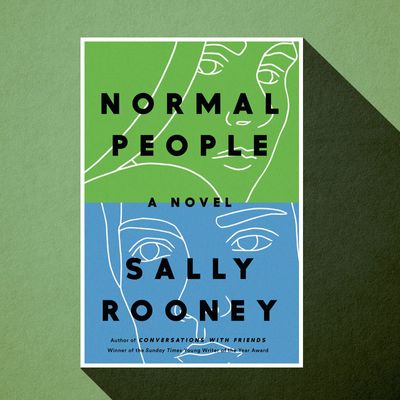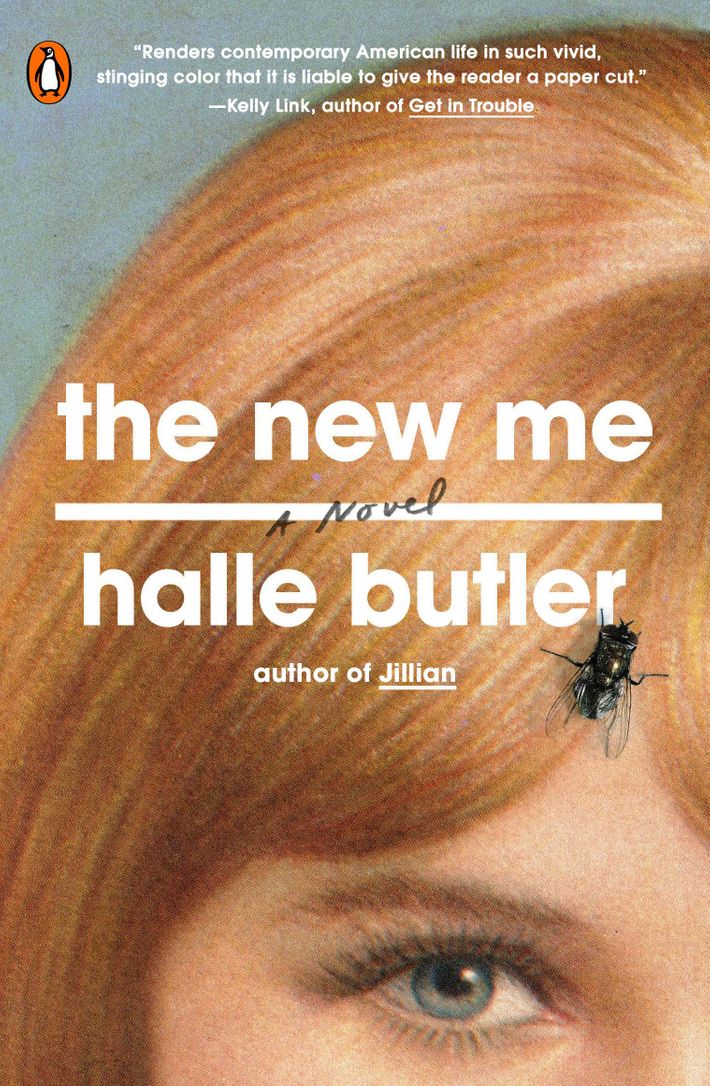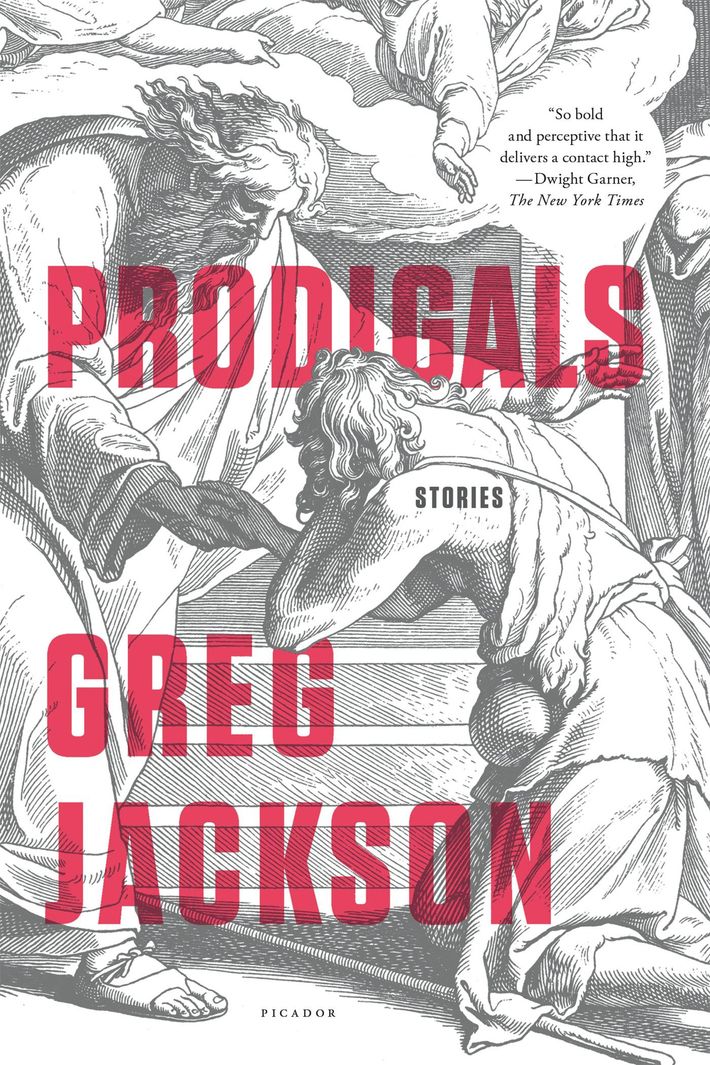
In the way that Orhan Pamuk is the translator of “the East” for Westerners, or Michael Lewis of business psychology for laypeople, Sally Rooney has become, for better and worse, the de facto translator of millennial concerns for non-millennials: a shamanlike guide who speaks both languages.
While plenty of millennials have sung Rooney’s praises, the role of millennial whisperer has been foisted upon the 28-year-old Irish novelist — author of Conversations With Friends and her follow-up, Normal People, out next week — largely by non-millennials, those in the old guard of media rushing to find and anoint the generation’s voice. A column in The Guardian, which advises a schoolteacher who wants to better understand “the avocado generation,” recommends her novels, as “Rooney writes in a distinctly modern, flippantly confessional style she attributes to long exchanges with friends online. You’ll feel like you hacked her Facebook Messenger.”
Beyond her spare, online-savvy, Tao Lin–esque emotionally distant prose, what’s crucial to Rooney’s generational role is that she mostly lets previous generations off the hook. The fact that her characters also speak the language of millennial socialism and Marxism while employing it as more put-on social identity than character motivator is, for their more fiscally conservative forebears, an added bonus.
Normal People is similar to Conversations With Friends in that a tense relationship takes center stage, but her second novel is even more pared down, tackling one instead of two romances. The main characters’ backgrounds prescribe their lives and personalities. Marianne is from a wealthy family; she’s not deemed particularly attractive in secondary school; and she’s disconnected from herself, a blanked-out screen, especially in her own perception. When she looks into a mirror: “It’s a face like a piece of technology, and her two eyes are cursors blinking … It expresses everything all at once, which is the same as expressing nothing.” Connell, on the other hand, is working class — his kindhearted mother, Lorraine, is Marianne’s family’s housekeeper — but as a soccer player with a face like “a criminal,” he’s more attractive and popular. He and Marianne sleep together; he cruelly asks her to keep it a secret, and she does: Family abuse has rendered her submissive. When he later asks a different girl to a dance, they break it off.
Their relationship starts up again at Trinity College — their talents having vaulted them from western Ireland to Dublin — but then it stops, and then it starts again, the rest of the novel a skittering seismograph of their mutual love and hate. The net result, though, is oddly peaceful, a straight line by mathematical average: Each push elicits an equal pull; each advantage reveals an equal disadvantage.
The politics of Rooney’s novels are ultimately in service to her characters’ eccentricities. The emotional distance of her style applies equally to the books’ politics, making her more of a sociologist than a novelist. Even when narrated in the present tense, the events that transpire in Conversations With Friends and Normal People don’t feel like lived experiences, exactly. They feel as though they happened in the past and a clever person is describing why and how they happened. It’s like a term paper on tropes turned into a novel: Here are all the recognizable characters and power dynamics; let’s add a little to them, mix them up, then analyze them. When Connell reflects on his wealthy university classmates, he sounds like F. Scott Fitzgerald discussing “the rich” with Ernest Hemingway, at once bewildered and nostalgic and very much removed even from his own self. “They just move through the world in a different way,” Rooney writes, in the limited third person, “and he’ll probably never really understand them, and he knows they will never understand him, or even try.”
It’s as if the fullness of Connell’s character has been predetermined. It’s Calvinism for the secular age, class-defining personhood, i.e., Marxism. The result is a hyperflatness, a hypersmoothness. There is relatively little agency at play, relatively few decisions being made. He’s poorer; she’s richer. He’s more attractive; she’s initially less attractive. Connell’s social status is the reason he keeps the relationship a secret; Marianne’s wealth causes her to blossom at Trinity.
None of this is meant to dismiss the novels because, in a way, Rooney has this all precisely right. The truest expression of what it feels like to live in the modern, postcapitalist political sphere is this oppressive feeling of lacking agency, propelled by a current of politics and power dynamics that are out of our control. It also feels realistic that the adults are the ones who actually have control — making life-altering decisions for them. The young folks are playing by the rules of older generations.
The politics of Rooney’s worlds define her characters’ personalities and interactions, but those characters also seem fully resigned to them. There is no interest in revolt, no interest in change. This is, I would imagine, particularly comforting to older generations, as it relegates talk of revolution to tongue-in-cheek asides. When, for instance, Connell rides the bus to meet Marianne at a café, he sees a protest but doesn’t notice what it’s for. “The household tax or something,” he says to Marianne, whereupon she quips, “Well, best of luck to them. May the revolution be swift and brutal.” One can imagine this line being said at a dinner party in an affluent suburb, the adults in the room getting a kick out of it. Kids and their socialism these days! Rooney’s characters are just sufficiently certain that the status quo will persist that any complaints or underlying frustrations come to seem ultimately superficial. In the end, politics isn’t actually that big of a deal. It’ll all work out.
And it does. The ending is a provisionally happy one; love and meritocracy prevail. And yet, Connell maintains the upper hand, as at the start. It’s a dynamic tied up in the politics of gender and abuse, which in this case seem to override concerns of class. But the lesson is that you are who you are, not who you want to be.
Contrast Rooney’s approach to that of other millennial novelists writing about their generational cohort, like Halle Butler, Greg Jackson, Tony Tulathimutte, and Ling Ma. In The New Me, Butler’s 30-year-old protagonist, Millie, a temp worker trapped in soul-sucking gigs, revolts in quotidian ways against a generation she holds partly responsible for her miserable situation. She embodies a particularly seething hatred against those whom she perceives as “normal” — those who are either benefitting from the current system of labor exploitation or blindly accepting of it. While riding the train to work in Chicago, she becomes disgusted by a woman blocking her from holding the pole. The real reason for her anger, though, is the woman’s presumed politics:
I imagine the mindless ease of her life. I imagine her thinking about that show she likes on ABC where adults pretend to be fairy-tale characters trying to make each other horny, and I imagine her referring to it as a guilty pleasure, like that’s somehow radical or makes her interesting … I want to use my hands to redirect her face to a fucking mirror.
It’s cathartic to inhabit Millie’s incensed mind — to know that the world is screwed up and that it’s okay to think that; there doesn’t have to be a happy ending, as there is in Normal People. Millie senses that she’s permanently screwed. Where Connell resigns himself to never understanding the rich, Millie pulses with class rage.
Greg Jackson, being in his mid-30s, is slightly older than Butler and nearly a decade older than Rooney. His anger often takes the form of a subtly blistering satire of a certain upper-middle-class type, which in turn gives way to a brutally honest self-evaluation of a generation at large (the kind that Millie wants to force on all of those comfortable women). In the first story of Jackson’s brilliant 2016 collection, Prodigals, “Wagner in the Desert,” a group of well-to-do yuppies engage in vacuous decadence on a Palm Springs holiday — among other debaucheries, snorting “blow off the keys to ecologically responsible cars.”
Jackson’s young people are emotionally stunted and existentially empty, but their circumstances are devastating for what they reveal: This kind of living might be considered a pinnacle of contemporary “success.” As we get older, we get sucked into the social system by degrees, making increasingly more concessions until we cease, really, to live. Says the story’s narrator:
I was by no means innocent of the slow supplanting drift by which the means to our most cherished and noble ends become the ends themselves — so that, for instance, writing something to change the world becomes writing something that matters to you becomes publishing something halfway decent becomes writing something publishable; or, to give another arbitrary example, finding everlasting love becomes finding somewhat lasting love becomes finding a reasonable mix of tolerance and lust becomes finding a sensible social teammate.
This feeling of captivity and degradation under capitalism takes on a more explicitly didactic form in Ling Ma’s Severance. After an apocalyptic disease spread through labor exploitation zombifies the populace, Ma’s protagonist, Candace, reflects on an old fight with an ex-boyfriend: “You think it’s possible to opt out of the system,” she told him. “No regular income, no health insurance. You quit jobs on a dime. You think this is freedom but I still see the bare, painstakingly cheap way you live, the scrimping and saving, and that is not freedom either … Opting out is not a real choice.”
This is, essentially, Rooney’s view: You are stuck with your hand, and real change is an illusion. But where Butler and Jackson have their characters radically react to this — Millie seethes; Jackson’s narrators make a show of giving up — Rooney’s are relatively blasé, politically disinterested (or, at least, only interested in using their political stances as markers of an adopted social identity).
The most prominent working-class adult in Normal People, Connell’s mother, Lorraine, expresses the typical disillusioned progressive talk of her generation. She makes light of the idea of communism as a genuine political option when her son implies that he’s going to vote for the leftist, independent politician Declan Bree. “‘We could do with a bit more communism in this country if you ask me,’ he said. From the corner of his eye he could see Lorraine smiling. ‘Come on now, comrade,’ she said. ‘I was the one who raised you with your good socialist values, remember?’” Lorraine still has socialist “values,” but they’ve been sanded over by life, just like the ideals once held by Jackson’s (higher-class) aging millennials.
Connell adopts this generational capitulation, not bothering to educate himself on Irish politics. When a few parliamentary seats go to Fine Gael — a party whose first president went on to support Francisco Franco in the Spanish Civil War — Lorraine calls it “a disgrace.” Connell, after hearing his mother vent, texts Marianne, trying to show off his political savvy: “fg in government, fucks sake. She texts back: The party of Franco.” Connell “had to look up what that meant.”
Perhaps it’s unfair to try to categorize Rooney as a “millennial novelist” at all, given that the epithet implies an interest in investigating the sensibilities of a whole generation. Rooney isn’t so much interested in making grand claims about society as she is in telling psychologically probing stories of individuals who are in and out of love, at which she’s very good. Politics, for her, is ultimately more setting than subject, more a way of quickly defining characters and creating tensions rather than necessarily motivating them. It is a set of unalterable circumstances that define the millennial “condition.” But there is little revolutionary about Rooney’s politics, no scent of revolt — only oppression. Which is, I suppose, exactly why she’s so attractive to a generation that established the politics under which we all now live — some of us thriving, most just getting by.






